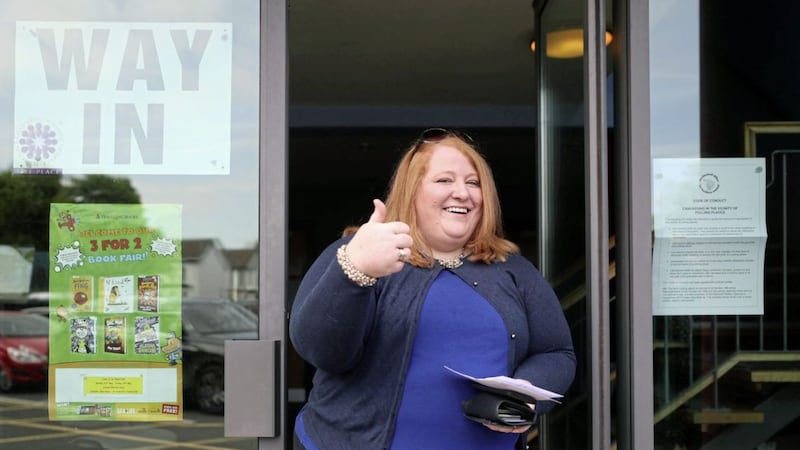It is understandable that people are lamenting the lack of unionist leadership and the paralysis of unionist parties as unease grows on the streets.
However, such complaints are several years behind the times. A decisive chunk of the unionist electorate has already given up on the DUP and the UUP and switched to Alliance.
This is creating a new political era, where a crushing defeat at the polls for both main unionist parties is a realistic outcome. In most democratic systems, that would be the correct and useful verdict on failure. So perhaps it is best for everyone, unionists and loyalists included, to stop fretting about the state of the DUP and the UUP and start clearing their way to a healthy hammering at the ballot box.
The extent of the Alliance ‘surge’ is under-appreciated. Usually dated to the three elections in 2019 for councils, Brussels and Westminster, it actually began with the March 2017 assembly election. In the Westminster contest three months later, unionists flocked back to the DUP, having been spooked by the loss of unionism’s majority and Sinn Féin almost becoming the largest party.
The significance of 2019 is that this fright wore off.
Enough unionist voters surveyed the Stormont deadlock and the DUP and UUP’s antics over Brexit and decided they did not care if unionism remained a minority or Michelle O’Neill became first minster. Some of these voters remained at home; others switched to Alliance, including directly from the DUP.
The Alliance surge has thus been stress-tested against the scare tactics unionist parties have always depended upon and which were baked into Stormont’s rules via the St Andrews agreement.
When the DUP restored power-sharing and briefly supported the Northern Ireland protocol - positions that should have won its lost voters back - opinion polls showed Alliance support continuing to grow and DUP support declining.
That trend can only have accelerated since February, when an online poll spooked the DUP into a protocol U-turn.
Loyalist unrest will accelerate the trend further. The DUP has been unfairly criticised for engaging with the Loyalist Communities Council - exactly the leadership its critics accuse it of lacking. Most loyalist groups are still just about trying to keep a lid on discontent. But the DUP is hopeless at pacifying street politics and the UUP is even worse. Neither has the presence or influence to rein in loyalism and both are institutionally incapable of taking a hard stand against it.
It suits republicans and nationalists to believe unionist parties stir up loyalist violence with cynical intent. The truth is that unionists alternate between ignoring loyalism and reacting to it. Even the ‘peaceful protest’ plan set out by loyalists for the coming months involves civil disobedience on parading and bonfires, which is bound to end in tears while unionists desperately equivocate.
Meanwhile, Alliance has defended the chief constable against unionist calls for him to resign and summoned the assembly to condemn loyalist violence without reservation. This is what the key swing voter wants to hear.
Sinn Féin is also losing support directly to Alliance, which doubles the surge and makes it self-reinforcing. The St Andrews rules changes, designed to ratchet Sinn Féin and DUP votes up together, ratchet them down together. February’s poll had Sinn Féin, the DUP and Alliance on 24, 19 and 18 per cent respectively. It seems possible that in next year’s assembly election, Alliance will eclipse the DUP by first preference votes if not by seats.
Throughout the history of Northern Ireland there have been hopes for a profound shift from binary orange/green politics. Well, here it is. It may not be the left/right or UK and all-Ireland party politics the hopeful have often imagined but it is certainly within the scope of evolution envisaged by the architects of the Good Friday Agreement.
The agreement required the British and Irish governments to review Stormont’s power-sharing arrangements after three years of operation, on the presumption mandatory coalition rules could be relaxed. Stormont parties were only to be consulted. Instead, Stormont collapsed after three years and was revived under the even tighter rules demanded by the DUP and Sinn Féin at St Andrews. Those rules cannot accommodate the Alliance surge, as they reserve the top two spots for the top two ‘designations’ despite otherwise meddling with the designation system.
London and Dublin need to review the rules again, as they are entitled and pledged to do. There are too many unaligned voters now to continue treating their votes as second-class.









